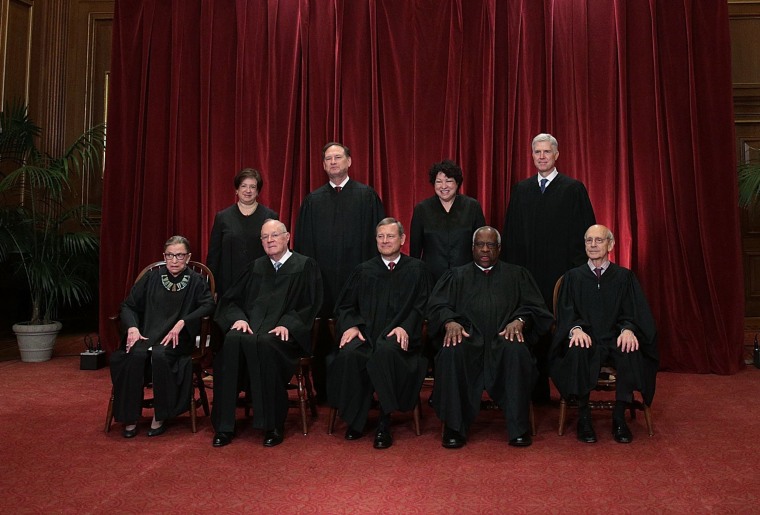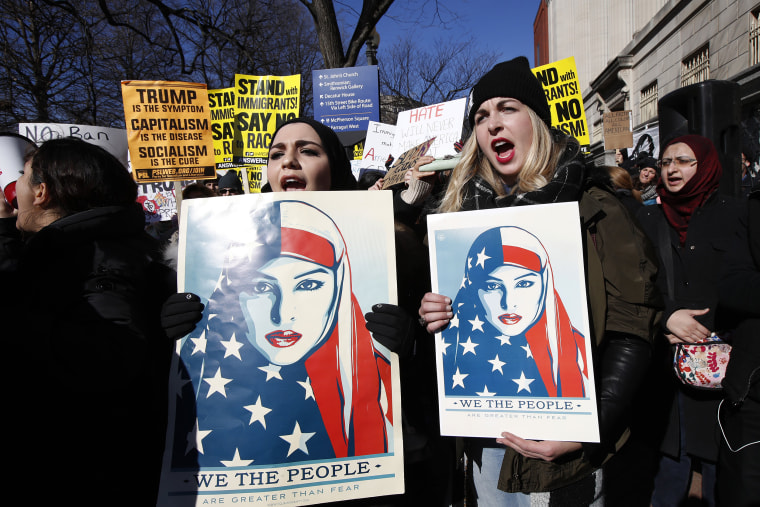The Trump administration is hoping that the U.S. Supreme Court will grant what the lower courts have so far denied — permission to begin enforcing the president's executive order on travel.
The government filed papers late Thursday asking the justices to take up its appeal and, in the meantime, to let it enforce the travel ban while the court decides whether to hear a full argument later on the legal aspects of the case.
The government has some reasons for optimism. The current Supreme Court, back to full strength with the arrival of Neil Gorsuch, is ideologically the most conservative body to consider the issue so far. And it generally, though by no means always, tends to defer to presidents on national security issues.

But even with a normally conservative majority on the court, the government faces some big challenges in trying to get what it seeks.
After President Donald Trump's first executive order was blocked, the president signed a second one, imposing a ban on travel from Iran, Sudan, Syria, Libya, Somalia, and Yemen for 90 days. During that period, the government was to assess the reliability of background information from those countries that the State Department uses to evaluate whether to issue a visa.
But the order has never been enforced, and the government must persuade the Supreme Court that it will be permanently harmed if it can't begin enforcement right away.
Prof. Steve Vladeck, an expert on the federal courts at the University of Texas at Austin, says it could be months before the court conducts a full hearing on the legality of the executive order. "I have to think it's going to weigh heavily on the minds of the justices just what it would mean to put the order into effect now, especially when we're looking at such a lag time on when the court might hear courtroom argument."
The Justice Department is urging the Supreme Court to ask for legal briefs to be submitted quickly, so that the justices can decide, before the term's business is concluded in late June, whether to hear the case later this year. If it does grant review, the case would likely be heard in the late summer or early fall.
At most, says John Blackman, a constitutional law expert at South Texas College of Law, the court might lift part of the lower court restrictions, allowing the government to assess the reliability of background information on visa applicants from the affected countries but keeping the ban on withholding visas in place.
The Justice Department's decision to take the case to the Supreme Court was expected, after the Fourth Circuit Court of Appeals upheld a ruling by a federal judge in Maryland who declared in March that the president's revised travel order amounted to unconstitutional religious discrimination.
Campaign statements by Donald Trump, who originally called for a ban on Muslim immigration, "provide direct, specific evidence" of what motivated his executive orders — "President Trump's desire to exclude Muslims from the United States," the appeals court said.

In their filings late Thursday, Justice Department lawyers said the ruling is the first to invalidate a provision of federal law "based on speculation about its drafters' supposedly illicit purpose." Trying to figure out what the president's motives were, based on campaign statements, would require "judicial psychoanalysis," they said.
The appeal to the Supreme Court comes with a built-in oddity. Even if the court were to lift the stay and let the government enforce the executive order, the 90-day ban on issuing visas would likely expire before the justices could get around to hearing oral arguments.
"A lot of the executive order might have exhausted itself by then," Vladeck says. "That's what makes it hard for the government, arguing that the executive order should go into effect now even though we've gone several months without it."
There's no deadline for the court to act, and the justices will wait for a response from the challengers opposed to the executive order before, due June 12, deciding what to do.
